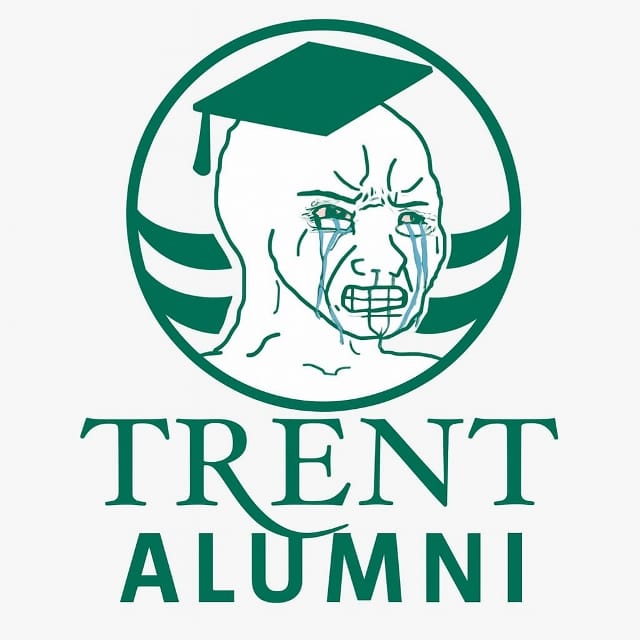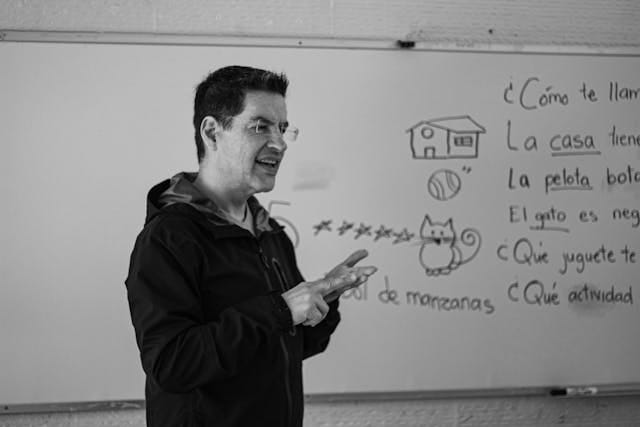3 School Subjects That Aren't a Waste of Time

I graduated university 20 years ago.
Most of it was a waste of time, money, and energy.
I received a Bachelor of Business Administration from Trent University.
It’s worthless on the open market.
They didn’t teach me anything I couldn’t learn in a two-week training course.
Living in the real world has given me perspective on the time I spent in school. Most of the subjects I studied haven’t been used once since I graduated.
School teaches us many subjects that are a waste of time for 99% of people. Sure, courses in philosophy, history, and sociology might be interesting, but they won’t translate into a paying job or a valuable skill you can use in the real world.
Over time, I’ve learned that the only subjects worth studying long-term fit into one of three categories:
- Health
- Wealth
- Relationships
Each of these classes has been helpful to me in one of these areas of my life.

Health: Anatomy and Physiology
For a time, I considered becoming a funeral director.
A nearby college offered a program, and the most challenging prerequisite for graduation was Anatomy and Physiology. I decided to knock that one out first.
There were about 25 of us in the class, split between people studying to become either funeral directors or nurses.
Our professor was very knowledgeable, but he spoke with a thick Russian accent, making it hard for some people to understand.
It was one of the hardest classes I’ve ever taken in my life.
But worth it.
We spend our entire lives living in these complex meatsuits, yet most of us don’t take the time to understand how our bodies actually function.
This class broke down the human body into each of the major systems: skeletal, muscular, nervous, digestive, endocrine, cardiovascular, reproductive, urinary, lymphatic, and integumentary (hair, skin, and nails).
We examined all of the major and minor organs down to the cellular level. We learned about the different types of tissues, and how they fit together.
Needless to say, it was a lot of memorization.
The most interesting aspect of this class by far was being allowed to examine the inside of a human body up close.
The college had donated cadavers, which had been opened up, and dissected in a way so that students can examine the different organs and learn to identify them in real-life rather than staring at pictures or diagrams in a textbook.
By the end of the course, I knew every part of my body. Medical shows made more sense than they did before.
I better understood how my body functions, and as a result, I was able to make better decisions about what I consume and how I use my body.
When it comes to classes that can help you become a better man, I definitely suggest taking an anatomy and physiology course, even if you aren’t planning on going into the medical field.
All of us have a body, and although it doesn’t come with an instruction manual - an anatomy course comes pretty close.
I never became a funeral director, but I still use the information that I gained from this class today.

Wealth: Accounting
I know what you’re thinking - DORK.
I get it, but don’t be so quick to rule this subject out. Accounting is useful in the real world.
Formal accounting isn’t something I use all the time - however, managing finances is something most of us will be doing our entire lives.
I started learning accounting in high school. When I studied business in university, I continued to take accounting courses - learning about balance sheets, income statements, cash-flow documents, and GAAP (Generally Accepted Accounting Principles).
Whether I’m managing my personal finances, or looking at the financial reports of a Fortune 500 company, accounting helps me understand what’s going on.
When my dad started his company, he didn’t understand accounting. He would receive reports, look them over, but couldn’t fully decipher them.
He took night school classes, which helped him better understand how businesses operate and allowed him to take control of how his company’s money was being used.
My sister works in law enforcement.
She’s investigated several cases where crooked accountants defrauded their employers over years - sometimes decades - lining their pockets with the company’s money.
Most of the victims had no clue how badly they were being taken advantage of.
Some of them struggled through a life of poverty while their accountant was showing up in a brand new SUV and taking off on exotic vacations every few months.
A basic knowledge of accounting could have prevented a lot of this fraud.
An accounting course won’t teach you how to cheat on your taxes, or hide your money in shell companies located in the Cayman Islands, but it will help you understand personal finance, business finance, and how to evaluate the financial health of companies you’re considering investing in.

Relationship: Languages
Canada is the only country on earth where it’s not cool to speak French.
The anglophone part of the country has an ongoing rivalry with the francophone province of Quebec going back to the 1700’s when the British defeated the French at the Battle of the Plains of Abraham for control over the country.
Today, it's not just about the war, politics, economics, culture, or language. It’s also about something that truly matters to Canadians: hockey.
Throughout elementary school, my class spent a great deal of time learning French - and hating every minute of it.
In high school, I only needed one French credit to graduate. Once I had it, I never took a French class again.
Fast forward a decade, and I was out in the real world realizing how useful French would be if I just stuck with it.
So many jobs in Canada require bilingualism - and they pay better.
Every time I visit Quebec, I’m at a loss when it comes to communicating with restaurant staff and retail workers - who give me a certain look before switching over to English.
However, I’m not without a second language.
In my final year of university, I took Spanish 101 - and I’m grateful I did.
The course felt like a throwback to my 4th grade French class in elementary school. Both are Romance languages, and the way we learned them was similar.
My professor came from Spain, so her pronunciation is different from the Spanish practiced in Latin America.
There’s a story that Spain once had a king who spoke with a lisp, and everybody wants to emulate the king, so now the country speaks Spanish with a lisp. I’m not sure if it’s true or not, but Spaniards definitely pronounce their S as TH when they speak.
While I was in university, many of my friends came from Latin America. They helped me with my Spanish throughout the course. Most of them were from Mexico, so now I tend to speak Spanish with a Mexican accent.
Since completing the course, I’ve traveled to several Spanish speaking countries: Mexico, Guatemala, Honduras, Nicaragua, Peru, El Salvador, Cuba, and the Dominican Republic.
While I’m not completely fluent, or even conversational, I have no trouble understanding the signs, menus, or instructions. I can order food, ask for help, direct a taxi, and generally do what needs to get done.
Communication is important, and I wish that I had prioritized it more when I was younger and it was easier to pick up a new language.
That said, it’s never too late to learn something new.
I took a second Spanish course at a local college, and met people in their 50s and 60s learning the basics, so don’t feel intimidated signing up for a new class.
This is definitely one of the subjects I’ve used the most since graduating. I highly recommend picking up a language you’re interested in.
If you plan on traveling, it will definitely help you get around, and even if you aren’t, it helps you better understand different countries and cultures.

It’s unfortunate how colleges and universities operate these days.
Getting a degree was once a guaranteed way to set yourself up for a prosperous future and a rewarding career.
Now it’s corrupt, expensive, overly politicized, and there’s no guarantee of a job once you graduate.
Most degrees outside of STEM are worthless - and even those have no guarantee of landing you a decent job.
If you’re going to spend your hard-earned money on education, you should get something as a result - and it should be more than a piece of paper.
It should be a skill you can use for the rest of your life.
I’m grateful that my education wasn’t a complete waste. I learned some useful skills, and made friends that I keep in touch with to this day.
Don’t give up on education, just because it doesn’t appear to be worth it. Instead, be strategic with what you’re learning. It will keep you from wasting your time.
A great book on this subject is Worthless: The Young Person’s Indispensable Guide to Choosing the Right Major by Aaron Clarey. It’s something I wish I read before choosing business administration as a major.
If you’re a young person getting ready to enroll in college, or if you’re already attending post-secondary education and wondering if you’re on the right path - I highly suggest reading this book.
It just might save you from a worthless degree and a lifetime of poverty.
If you enjoyed this article, bookmark this page and remember to Subscribe.
Check out my Substack:
http://crossedstakes.substack.com
And follow me on socials:
Facebook: https://www.facebook.com/profile.php?id=61577920320315
Twitter: https://x.com/peterm82321
Instagram: https://www.instagram.com/peter477894/
Youtube: https://www.youtube.com/@oreilly81
Thanks for reading.
God Bless.
Member discussion